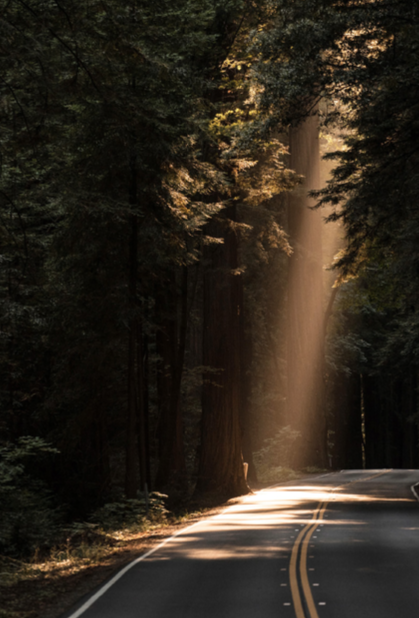The Rise of Conscious Design
A Foresight Report for Volvo Cars
A generation of innovative businesses, designers and organisations are re-assessing how they design products and the materials they use in them, pushing a future of conscious design forward. Volvo commissioned The Future Laboratory to produce a new foresight report identifying the emerging trends in conscious design
As the impact of our consumption on the environment becomes increasingly visible, a generation of future-facing businesses, designers and organisations are adopting considered, long-term, sustainable and circular approaches to design.
But before this future can be fully realised, a new material world is first required. At present, many materials in use consist of virgin or fossil-based synthetic fibres, requiring water- or chemical- intensive processes, or derived from sources that may not prioritise animal welfare.
In this report, we combine expert interviews with consumer insight and identify the emerging trends and attitudes that will drive transformation in the decade ahead. We explore the social, cultural and technological forces that are shaping the rise of conscious design and its new material world, revealing the future materials and design principles that will sit at its heart over the next five years and beyond.
: The Rise of Conscious Design
 Volvo Cars
Volvo Cars
As society grapples with a series of existential challenges and the window to prevent irreversible environmental damage grows smaller, a generation of future-facing businesses, designers and organisations are adopting considered, long-term, sustainable and circular approaches to design. Welcome to the era of conscious design.
The rise of conscious design stems from a pressing need to ensure that future products across categories are ethical, sustainable and regenerative. For Xu Gang, co-founder of Bentu Design, this represents a challenge of planetary proportions. ‘Society faces the dual threats of resource scarcity and environmental degradation,’ he says. ‘The burden on our planet has increased dramatically. Creating sustainable concepts and using sustainable materials is now a universal issue closely bound up with the survival and development of humanity as we know it.’
With global demand for new textile fibres forecast to increase by 150% by 2050, according to Axfoundation, a new material world is required before this future can be fully realised. At present, many materials in use consist of virgin or fossil- based synthetic fibres, requiring water- or chemical-intensive processes, or are derived from sources that may not prioritise animal welfare.
It is now integral that brands harness the opportunities on offer and ensure that their products are designed to deliver planetary safety as well as personal safety.
‘Global demand for new textile fibres is forecast to increase by 150% by 2050.’
: Axfoundation
: Consumer Drivers
The rise of conscious design is being driven by a series of influential social, cultural and technological shifts that are transforming consumer demands, expectations and outlooks.
Some of these consumer drivers include:
: Whole-System Thinking
Once focused specifically on environmental factors, consumers are rapidly developing a more holistic understanding of sustainability and ethics.
: Trust Fatigue
After a year of unprecedented turbulence, we’re now experiencing an epidemic of widespread mistrust of institutions around the world.
: Nature Renaissance
After months of lockdowns across the globe, the pandemic has led to a renaissance of love for wildlife and nature among consumers, and a deeper appreciation of its power.
: Luxtainability Rising
A focus on sustainability, regeneration and circularity is driving new directions in luxury and welcoming an era of ‘luxtainability’.
Discover our Sustainability series on LS:N Global and uncover the ideas, innovations and actions your brand can take today to become part of an eco-conscious tomorrow.
‘If countries and businesses prioritise nature-positive solutions, they could generate £7.1 trillion(€8.2 trillion) in annual business opportunities and create 395m jobs bythe end of 2030.’
World Economic Forum: Tomorrow’s Materials
Over the next five years, the four driving forces of Whole-system Thinking, Trust Fatigue, Nature Renaissance and Luxtainability Rising will have radically transformed the expectations of consumers and the demands they place on brands.
Defining tomorrow, we'll see:
: Natural Luxury
Driven by a renewed appreciation of nature’s power post- pandemic, in the next five years textiles derived from responsibly sourced traditional natural fibres will emerge as a new kind of premium in the materials space, elevated by their timelessness and superpower properties.
: Repurposed Richness
As sustainability and luxury become synonymous, new value is being attributed to once discarded materials freshly transformed into not just something new, but something better.
: Bio-positive Premium
A new generation of sustainable designers are creating positive-impact materials capable of restoring biodiversity and regenerating the environment.
: Experimental Textiles
A new wave of experimental innovations are harnessing previously untapped resources and pushing the possibilities of what materials can do.
To learn more from about The Rise of Conscious Design, download the full report here.
If you are interested in finding out more about our Foresight reports that combine quantitative and qualitative research with original case studies and innovations to achieve your business objectives, click here.
For more about our client reports and case studies, get in touch with a member of our team.
FIND OUT MORE
